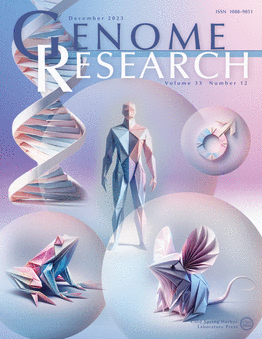The Chinese longsnout catfish genome provides novel insights into the feeding preference and corresponding metabolic strategy of carnivores
IF 6.2
2区 生物学
Q1 BIOCHEMISTRY & MOLECULAR BIOLOGY
引用次数: 0
Abstract
Fish show variation in feeding habits to adapt to complex environments. However, the genetic basis of feeding preference and the corresponding metabolic strategies that differentiate feeding habits remain elusive. Here, by comparing the whole genome of a typical carnivorous fish (Leiocassis longirostris Günther) with that of herbivorous fish, we identify 250 genes through both positive selection and rapid evolution, including taste receptor taste receptor type 1 member 3 (tas1r3) and trypsin. We demonstrate that tas1r3 is required for carnivore preference in tas1r3-deficient zebrafish and in a diet-shifted grass carp model. We confirm that trypsin correlates with the metabolic strategies of fish with distinct feeding habits. Furthermore, marked alterations in trypsin activity and metabolic profiles are accompanied by a transition of feeding preference in tas1r3-deficient zebrafish and diet-shifted grass carp. Our results reveal a conserved adaptation between feeding preference and corresponding metabolic strategies in fish, and provide novel insights into the adaptation of feeding habits over the evolution course.中国长口鲇基因组为了解食肉动物的摄食偏好和相应的代谢策略提供了新的视角
鱼类的摄食习性各不相同,以适应复杂的环境。然而,鱼类摄食偏好的遗传基础以及区分摄食习性的相应代谢策略仍然难以捉摸。在这里,通过比较典型的肉食性鱼类(Leiocassis longirostris Günther)和草食性鱼类的全基因组,我们通过正向选择和快速进化发现了250个基因,包括味觉受体1型成员3(tas1r3)和胰蛋白酶。我们证明,在缺失 tas1r3 的斑马鱼和食谱改变的草鱼模型中,tas1r3 是食肉动物偏好所必需的。我们证实,胰蛋白酶与具有不同摄食习性的鱼类的代谢策略相关。此外,胰蛋白酶活性和新陈代谢特征的明显改变伴随着 tas1r3 缺陷斑马鱼和食性转换草鱼摄食偏好的转变。我们的研究结果揭示了鱼类摄食偏好与相应代谢策略之间的一致适应性,并对摄食习性在进化过程中的适应性提供了新的见解。
本文章由计算机程序翻译,如有差异,请以英文原文为准。
求助全文
约1分钟内获得全文
求助全文
来源期刊

Genome research
生物-生化与分子生物学
CiteScore
12.40
自引率
1.40%
发文量
140
审稿时长
6 months
期刊介绍:
Launched in 1995, Genome Research is an international, continuously published, peer-reviewed journal that focuses on research that provides novel insights into the genome biology of all organisms, including advances in genomic medicine.
Among the topics considered by the journal are genome structure and function, comparative genomics, molecular evolution, genome-scale quantitative and population genetics, proteomics, epigenomics, and systems biology. The journal also features exciting gene discoveries and reports of cutting-edge computational biology and high-throughput methodologies.
New data in these areas are published as research papers, or methods and resource reports that provide novel information on technologies or tools that will be of interest to a broad readership. Complete data sets are presented electronically on the journal''s web site where appropriate. The journal also provides Reviews, Perspectives, and Insight/Outlook articles, which present commentary on the latest advances published both here and elsewhere, placing such progress in its broader biological context.
 求助内容:
求助内容: 应助结果提醒方式:
应助结果提醒方式:


